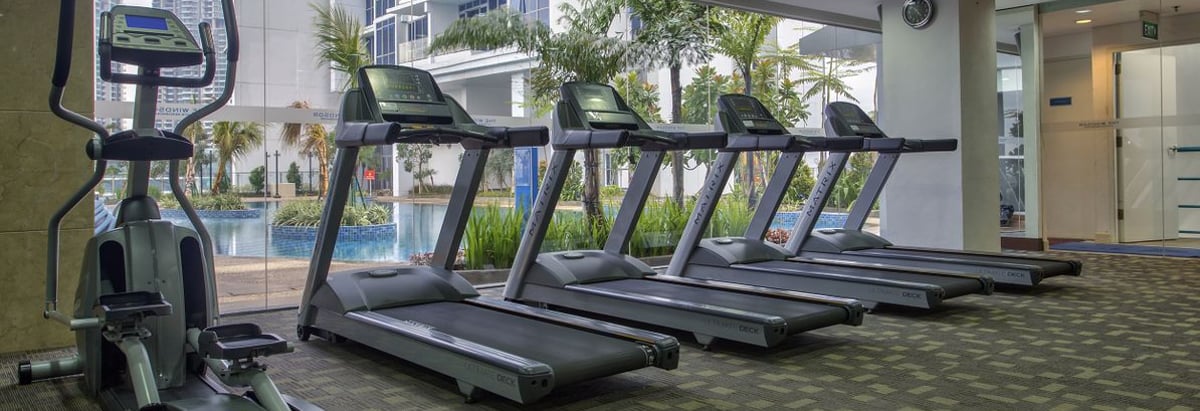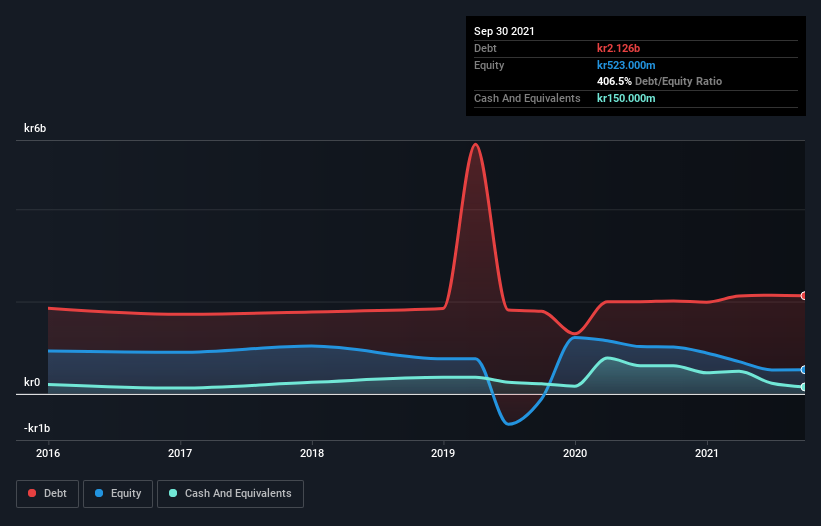
Legendary fund manager Li Lu (who Charlie Munger backed) once said, 'The biggest investment risk is not the volatility of prices, but whether you will suffer a permanent loss of capital.' It's only natural to consider a company's balance sheet when you examine how risky it is, since debt is often involved when a business collapses. We can see that Sats ASA (OB:SATS) does use debt in its business. But is this debt a concern to shareholders?
Why Does Debt Bring Risk?
Debt assists a business until the business has trouble paying it off, either with new capital or with free cash flow. Ultimately, if the company can't fulfill its legal obligations to repay debt, shareholders could walk away with nothing. However, a more frequent (but still costly) occurrence is where a company must issue shares at bargain-basement prices, permanently diluting shareholders, just to shore up its balance sheet. Of course, plenty of companies use debt to fund growth, without any negative consequences. When we examine debt levels, we first consider both cash and debt levels, together.
View our latest analysis for Sats
How Much Debt Does Sats Carry?
As you can see below, at the end of September 2021, Sats had kr2.13b of debt, up from kr2.01b a year ago. Click the image for more detail. However, because it has a cash reserve of kr150.0m, its net debt is less, at about kr1.98b.

How Healthy Is Sats' Balance Sheet?
Zooming in on the latest balance sheet data, we can see that Sats had liabilities of kr1.89b due within 12 months and liabilities of kr5.82b due beyond that. On the other hand, it had cash of kr150.0m and kr183.0m worth of receivables due within a year. So its liabilities outweigh the sum of its cash and (near-term) receivables by kr7.38b.
The deficiency here weighs heavily on the kr3.81b company itself, as if a child were struggling under the weight of an enormous back-pack full of books, his sports gear, and a trumpet. So we'd watch its balance sheet closely, without a doubt. After all, Sats would likely require a major re-capitalisation if it had to pay its creditors today. When analysing debt levels, the balance sheet is the obvious place to start. But ultimately the future profitability of the business will decide if Sats can strengthen its balance sheet over time. So if you're focused on the future you can check out this free report showing analyst profit forecasts.
Over 12 months, Sats made a loss at the EBIT level, and saw its revenue drop to kr3.1b, which is a fall of 17%. That's not what we would hope to see.
Caveat Emptor
While Sats's falling revenue is about as heartwarming as a wet blanket, arguably its earnings before interest and tax (EBIT) loss is even less appealing. Indeed, it lost kr267m at the EBIT level. Considering that alongside the liabilities mentioned above make us nervous about the company. We'd want to see some strong near-term improvements before getting too interested in the stock. It's fair to say the loss of kr481m didn't encourage us either; we'd like to see a profit. In the meantime, we consider the stock to be risky. For riskier companies like Sats I always like to keep an eye on whether insiders are buying or selling. So click here if you want to find out for yourself.
At the end of the day, it's often better to focus on companies that are free from net debt. You can access our special list of such companies (all with a track record of profit growth). It's free.
New: Manage All Your Stock Portfolios in One Place
We've created the ultimate portfolio companion for stock investors, and it's free.
• Connect an unlimited number of Portfolios and see your total in one currency
• Be alerted to new Warning Signs or Risks via email or mobile
• Track the Fair Value of your stocks
This article by Simply Wall St is general in nature. We provide commentary based on historical data and analyst forecasts only using an unbiased methodology and our articles are not intended to be financial advice. It does not constitute a recommendation to buy or sell any stock, and does not take account of your objectives, or your financial situation. We aim to bring you long-term focused analysis driven by fundamental data. Note that our analysis may not factor in the latest price-sensitive company announcements or qualitative material. Simply Wall St has no position in any stocks mentioned.
Have feedback on this article? Concerned about the content? Get in touch with us directly. Alternatively, email editorial-team (at) simplywallst.com.
About OB:SATS
Sats
Provides fitness and training services in Norway, Sweden, Denmark, and Finland.
Reasonable growth potential with proven track record.
Similar Companies
Market Insights
Community Narratives



